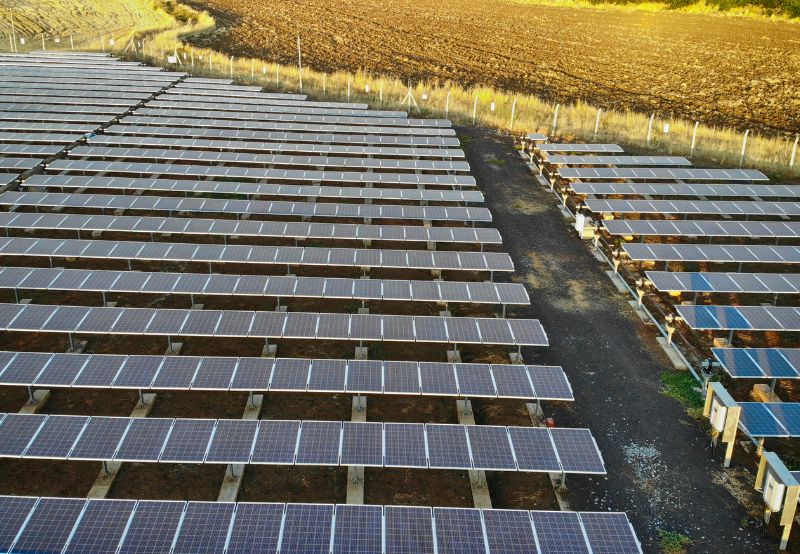The GBIF Ebbe Nielsen Challenge is an annual competition that seeks to inspire innovative applications of open-access biodiversity data. In 2025, the Challenge will award a total of €20 thousand for advancements in open science that feature tools and techniques that improve the access, usefulness, and quality of open biodiversity data. The Challenge is open worldwide to individuals, teams of individuals, companies and their employees, and governmental agencies and their employees. The closing date for submissions is 07 September 2025. Ebbe Nielsen Challenge
The Ebbe Nielsen Challenge has opened its 2025 call for innovative tools, both new and existing, that leverage biodiversity data from the GBIF network to advance open science in support of research and policy. An expert jury will judge entries on their relevance, novelty and quality to select a pool of winners to share a prize pool of up to €20,000.
Between now and 7 September 2025, individuals and teams can submit entries to this open-ended incentive competition, detailing the unique tools and inventive techniques they’ve developed or improved to increase the accessibility, quality and usefulness of open biodiversity data.
Challenge entries may detail newly developed functional prototypes, tools and techniques or existing ones whose capabilities and features have been improved or extended. Entrants can explore last year’s entries along with dozens of previous Challenge winners for inspiration on ideas, topics and approaches worth pursuing.
Entries should benefit multiple GBIF constituencies, including data users, data holders and data managers. Entrants may wish to review the GBIF Communications Strategy to see how GBIF characterizes its audiences.
Winners will be announced following the 32nd GBIF Governing Board meeting at Living Data 2025, a joint conference of GBIF, TDWG, OBIS and GEO BON held in Bogotá, Colombia, between 21 and 24 October 2025.
The Challenge honours the memory of Dr Ebbe Schmidt Nielsen, an inspirational leader in the fields of biosystematics and biodiversity informatics and a principal founder of GBIF, who died suddenly just before it came into being.
Official rules: 2025 GBIF Ebbe Nielsen Challenge
Entry form: 2025 GBIF Ebbe Nielsen Challenge
The following summary of rules and requirements does not replace or supersede the official rules. Please send questions or requests for clarifications to ENChallenge@gbif.org.
Submission deadline
Contents
7 September 2025, 23:59 Central European Summer Time (UTC+2)
Eligibility
The Challenge is open to individuals, teams of individuals, companies and their employees, and governmental agencies and their employees.
The Challenge is not open to:
- Current staff members at the GBIF Secretariat
- Individuals currently contracting directly with the GBIF Secretariat
- Members of the GBIF Science Committee
- Heads of Delegation to GBIF
Submission requirements
Entrants must complete the entry form, which provides information about the entry and the following components, which will comprise the formal submission:
- Submission name/title
- Team member(s) names and affiliations
- Abstract and rationale
- Operating instructions
- Link to visuals (prototype, demo, video, screenshots, slides, etc.)
- Link(s) to submission materials on any appropriate website or repository
The judges and GBIF Secretariat staff must be able to
- access and operate or review the submission at no cost
- operate it on readily available hardware (if the submission is a stand-alone application)
- repeat any processes or routines, if the submission is a script or other automated solution
Entrants can prepare and document their entries on a repository or platform of their choosing — GitHub, Jupyter Notebook, Dryad, FigShare, Open Science Framework or other web platforms.
By encouraging the use of tools that they are already familiar with, entrants can focus squarely on key questions of what, how and why:
- What is the submission?
- How does it work?
- Why should it matter to specific GBIF communities of practice?
- What should I create?
The Ebbe Nielsen Challenge is intentionally open-ended. Entrants have a wide remit to create and improve tools and techniques that advance open science and improve the access, quality and usefulness of GBIF-mediated data. Challenge submissions may be new applications, visualization methods, workflows or analyses, or they build on and extend existing tools and features.
It is expected that successful entries provide practical, pragmatic solutions for the GBIF network while advancing biodiversity informatics and biodiversity data management, particularly in alignment with the GBIF strategic framework.
Criteria
A panel of expert judges from relevant scientific, informatics and technology domains will evaluate submissions based on the following criteria:
Applicability: Does the Submission have sufficient relevance and scope that the communities GBIF support can use or build it?
Benefit for GBIF network: Is there an added value of the submission for GBIF and how important/what kind of added value is it (new data, new community, new tools, outreach, policy briefing, etc.)?
Innovation/Novelty: How new/unique is the Submission’s contribution? Are there similar developments on the market (may be less user friendly)? Has a significant portion of the Submission been developed specifically for the Challenge/is strongly related to the Challenge?
Quality of implementation: Does the Submission work reliably? Is the technical implementation well done? Are the tools and services well described?
Openness and repeatability: Are the constituent elements of the Submission, like code and content, freely available and transparent? Are they appropriately licensed?
Previous Challenge winners
- 2024 winners
- 2023 winners
- 2022 winners
- 2021 winners
- 2020 winners
- 2019 winners
- 2018 winners
- 2016 winners
- 2015 winners
Previous Challenge entrants
2024




